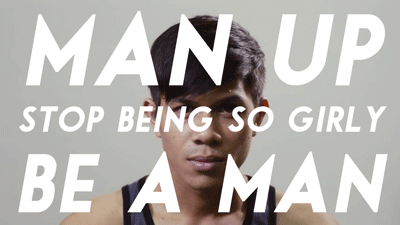-
Advocacy Theme
-
Tags
- Abortion
- Adoption
- Caregiving
- CEDAW
- Disability
- Domestic Violence
- Domestic Workers
- Harassment
- Healthcare
- Housing
- International/Regional Work
- Maintenance
- Media
- Migrant Spouses
- Migrant Workers
- Muslim Law
- National budget
- Parental Leave
- Parenthood
- Polygamy
- Population
- Race and religion
- Sexual Violence
- Sexuality Education
- Single Parents
- Social Support
- Sterilisation
- Women's Charter
Survey: 9 in 10 teenage boys face social pressures to be “manly”, including through violence
July 12th, 2017 | Children and Young People, Gender-based Violence, News, Press Release
 A new survey has shown that 9 in 10 teenage boys report facing pressures to be ‘manly’ through experiences of harassment, bullying, teasing, social exclusion, and psychological and physical violence.
A new survey has shown that 9 in 10 teenage boys report facing pressures to be ‘manly’ through experiences of harassment, bullying, teasing, social exclusion, and psychological and physical violence.
The study, a collaboration between gender equality group AWARE and Ngee Ann Polytechnic’s Diploma in Psychology Studies programme, surveyed 809 male respondents across JCs, Polytechnics and ITEs, most aged 17 to 18, who answered based on their experiences during secondary school.
Committing and experiencing violence
Virtually all (97%) boys have experienced violence or gender-policing for being ‘gay/girly’, or committed violence against other boys for being ‘gay/girly’. For example, they had teased or insulted other boys for having feminine characteristics, or used words like ‘sissy’, ‘pondan’, ‘ah kua’ or ‘gay’ to refer to someone’s behaviour, or have been on the receiving end of such bullying.
82% of respondents have committed physical violence against others boys and/or transgender women/girls while 74% of respondents have experienced physical violence. For example, more than half of respondents (54%) have hit, pushed, shoved or spat on another boy.
The survey also found that more than 20% of respondents have been physically aggressive towards transgender women, or have actively gone to public areas where transgender people are known to be, in order to tease, insult or make rude gestures at them.
Pressure to be ‘manly’
The survey found that 90% of the boys experienced ‘gender policing’, and the most common forms of such pressure are being told to “man-up” and to “take it like a man”.
Strikingly, boys who have been pressured to be more gender-conforming were four times more likely to commit violence against and six times more likely to experience violence from other boys, and to have lower self-esteem.
“There’s an overwhelming connection between boys facing pressure to be ‘manly’ and boys using physical violence as well as verbal and social cruelty on one another,” said Jolene Tan, Head of Advocacy and Research at AWARE. “Parents and teachers need to reflect: when we tell boys to ‘take it like a man’ or ‘stop being a girl’, we are perpetuating a pattern of violence. The education system, too, needs to step in: by actively facilitating conversations about the harms of gender stereotypes, and promoting the values of equality, diversity and respect.”
Said Daryl Yam, one of the panelists at the roundtable for the survey findings, “I was subject to a fair deal of bullying as a kid. Teachers and classmates openly taunted me for being a ‘gu niang’ or an ‘ah gua’, and it had a twisted effect on my personality, and my ability to form friendships with people. It led to very self-destructive behaviour, and the only thing it taught me was that masculinity – this constant pressure to be ‘a man’ – was an ideal that constantly led to ruin.”
The survey findings will be presented at a roundtable happening on 12 July (Wednesday), led by a panel comprising AWARE’s research team, together with Benny Bong, a counsellor and anti-violence advocate; Sherry Sherqueshaa, researcher and writer at Project X, a sex workers’ rights group; and Daryl Yam, a writer and editor who will be sharing more about his experience of violence in school.
Other significant results from the survey include:
- Some boys who were seen as ‘weak’ and ‘girly’ were reported to be sexually abused: One respondent reported that these boys “were raped”, while another said, “They (were) touched inappropriately to make them cry.”
- Boys who were seen as ‘weak’ or ‘girly’ were socially excluded: Said one respondent, “They were socially outcasted [sic] by most of the people they met and had little or no good friends around them.” Another said, “They were not included in sports, projects and outings. Also, they would be a hot topic to speak about when everyone is bored.”
- Violence experienced by boys who were seen as ‘weak’ and ‘girly’ is normalised and trivialised: Said one respondent, “If they said how they felt when someone insulted them, they would say to take it like a man and stop being such a girl.”



